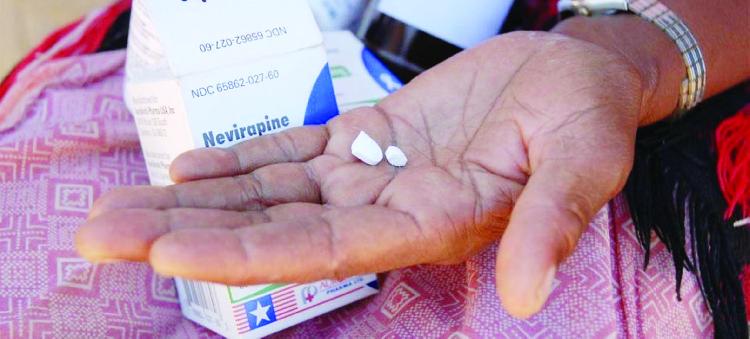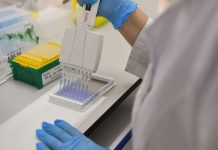Africa-Press – Namibia. SOME HIV-positive mothers have not been collecting nevirapine, a medicine which is vital for the prevention of mother-to-child transmission of the disease when breastfeeding.
Nevirapine reduces the viral load in the body. According to the Ministry of Health and Social Services, some mothers have either not provided them with their correct contact details or have changed their address.
As a result, healthcare workers in the field are struggling to reach the mothers. Executive director of health and social services Ben Nangombe last week cautioned that these mothers are putting their babies at risk of contracting the virus.
The ministry said this worrying trend comes at a time when the number of breastfeeding mothers living with HIV has increased. The national database shows the country had 12 241 HIV-positive breastfeeding mothers in 2018, 13 292 in 2019, and 15 116 in 2020.
Nangombe said the ministry is also aware of some mothers failing to collect their nevirapine, adding that the ministry has since instituted tracing mechanisms to get hold of all breastfeeding mothers living with the disease.
“The ministry uses different mechanisms, including health extension workers, to trace defaulting parents and bring them back to care,” he said.
Nangombe said Namibia has adequate supplies of the medicine, and parents and guardians are advised to go to their nearest healthcare facility to collect such. He said all infants born to mothers living with HIV should receive antiretroviral prophylaxis for a minimum of six weeks.
“There are certain situations in which nevirapine prophylaxis is given until the end of the breastfeeding period. In these circumstances, mothers are advised to collect nevirapine every month,” he said.
Nangombe said mothers received medication three months in advance during the height of the Covid-19 pandemic. “All breastfeeding mothers should only stop giving their babies nevirapine when advised to do so by a healthcare worker at a health facility.
“Without Nevirapine, the child can get infected,” he said.
Nangombe said pregnant and breastfeeding women with HIV should also to take their antiretroviral treatment diligently to ensure low levels of the virus in their blood, and to reduce the risk of transmission of the virus to their babies.
He said the ministry provides guidance and support to make sure the babies of HIV-positive mothers have access to nevirapine at all times. “But it is also the responsibility of the mothers to make sure they pick up their babies’ medicine,” he said.
The Namibian spoke to several healthcare workers who preferred to remain anonymous, but are concerned about inconsistencies in collecting nevirapine. “It is very disappointing seeing how many mothers actually come and pick up their drugs,” a nurse said.
She said many HIV-infected mothers only collect their medicine once, and never thereafter. “This is very disappointing, because when it affects the unborn baby negatively. The unborn baby could be born with HIV.”
For More News And Analysis About Namibia Follow Africa-Press






